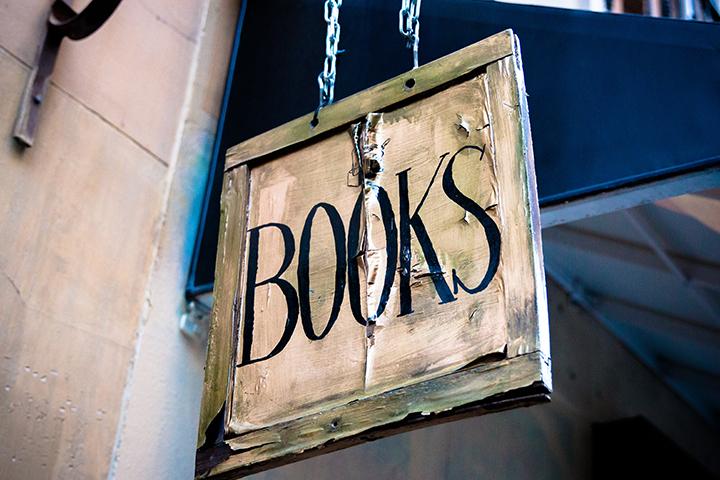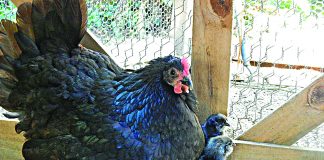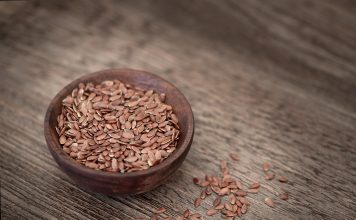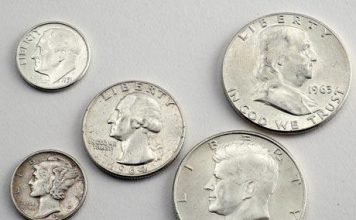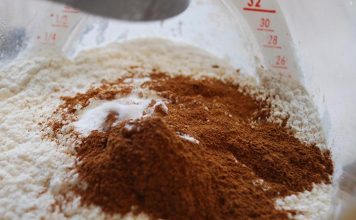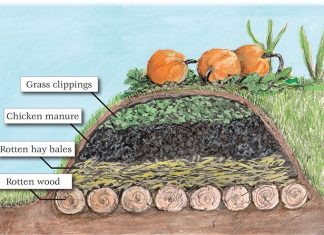 |
|
| Issue #52 • July/August, 1998 |
If you stand reading at the rack closest to the window, you can look up from your book to see the Strawberry Wilderness looming its wooded heights into the blue sky above the town. The woman from Denver is browsing the shelves. She stares at the drama section for a long time, and finally bursts out “I can’t believe you have Waiting for Godot in John Day, Oregon!”
A local man with a reputation for fixing anything spots an incomplete set of The Thomas Register, a compendium of who makes what. It contains sources for everything from church pews to electronic equipment, with product listings and descriptions. The man just sits and shakes his head in disbelief that such a wonderful thing exists.
David Judson had bought the set to keep in the shop as a reference, but it goes out the door with the handyman, who uses it to find obscure parts and fix even more things around town than before. The Judsons now plan to buy a brand new set for the shop. It will not be for sale. They’ll give it a special shelf near a sitting area where customers can browse through it at leisure. The next nearest public set is in the Ontario library.
Welcome to the Uffda-shop, which has more used and antiquarian books than the population of this remote county of 8,000 people. Apparently, good used bookstores may be found wherever lovers of old books live.

A main-street location makes the shop highly visible. |
Kathy Judson started the book business when she and her husband David moved from Ontario, Oregon. David had an established career building and repairing computers. They had been commuting to John Day to fill the need here for some years, and wanted to live in the smaller community. David thought the move would involve some volume tradeoffs, but was pleased to find out that his excellent work generated more business than he thought possible in this remote area.
Kathy had never lived beyond easy commuting distance from a good used bookstore, and she says “I couldn’t stand it.” The book section grew from a shelf in the corner to take over 2/3 of their present space in a prime retail spot in this small town.
People often come in to the store looking for books to replace copies loaned (and not returned) or lost. They sometimes find things they’ve been seeking for years. “It’s really fun when they’ve been looking for something, and they find it, and it’s out of print and here it is!” Of course, used books are a moving target, and what’s in the collection is in constant revision as books are brought in and sold. Kathy tries to keep the collection as eclectic as possible.
The Judsons have an innovative way of buying used books. Cash can be pretty scarce in a small town, especially during off-season for logging and tourists. They use “Uffda Bucks,” store money which looks like pretty play money. Local book traders can use them like cash at the store. Inventory cost is not accounted until the “Uffda Buck” is spent at the till (and of course, if they get lost, the inventory was free).
Kathy only pays cash for used books in special circumstances, such as buying fine collector’s books or a customer moving away. A lot of the books brought into the store come from Bend, Boise, Powell’s in Portland. “Local readers are very well-traveled. They do some of my book-buying for me.”
Kathy says that if you look at the demographics of the John Day area, you wouldn’t expect the range of reading tastes. She sells a lot of classics, new books that have been recently reviewed in The Oregonian, and a wide range of other types of literature. The extreme variety of reading tastes in town doesn’t fit the image generated by the bucolic surroundings. “Anyone who thinks they know what loggers and ranchers will read is going to be really surprised!”
The store feels different from the stereotypical dusty, claustrophobic used bookstore. “We broke a lot of the rules,” Kathy says. The books have all been cleaned with “409” glass cleaner, and old labels removed with lighter fluid. The aisles are roomy and airy, the stacks merely head-height, the shelves spaced to see through between the books. Kathy hated the green shag carpeting when she first saw it, but she admits it has a grassy, bright appearance and makes a friendly surface for children (and their grandparents) to sprawl on.
The children’s section has even lower shelves, so little hands can reach the books. The children’s books are unorganized, because they always end up that way anyway, and the kids don’t seem to care. There are selected new books among them, since good children’s literature is always coming out, and young people don’t always leave their books in buyable shape. Kathy is careful about the condition of what she buys.

Kathy Judson assists customers in the |
There is a jar of penny candy on the counter. A visitor from Vermont says “Oh, Tootsie Rolls, my favorite!” throws in a dime, stuffs his pocket, and munches as he peruses the books. He sits at the table by the window while he checks one out more closely. He leaves with a songbook which contains the lyrics he’s been looking for to a cowboy song.
One of the specialties of the shop is the regional section. It contains mostly nonfiction about the inland west. Many of the books in this section are brought in new because they are difficult to find on the used market. Kathy has a good section of older Westerns, depending on what’s available in good shape, and what people are asking for. The shop is developing a specialty in old hunting and fishing books.
General recreational fiction is the largest single section. “You never know what people are going to buy. About the time you’re ready to give up on (an author or subject), someone will come in and buy every single one of them. I just try to keep a good selection.” While I was there, a woman bought a pile of Sandra Brown books, and Kathy said, “That’s the second time I’ve been cleaned out of hers in a month.”
Though there aren’t very many local authors, Kathy keeps their books in stock. She also buys from small presses like Caxton (which specializes in western nonfiction), as well as from a new-book wholesaler on computer.
Used and new books are entirely different business strategies, but more and more stores are combining them. At the time they started the Uffda shop, there was a new bookstore in John Day, so Kathy planned to stick with the used books. With her innovative way of purchasing used books, they were a much safer business strategy.
When the other bookstore’s owner retired last year and closed her shop, Kathy began filling the demand for special orders, for which she gives a 10% discount if prepaid (she finds people pick up their books a lot faster!). She has gradually added a few up-to-date technical manuals and other new books to the shelves that she feels will round out the collection, and reports happily that most of them have sold.
For special order used books, Kathy has access through the Internet to antiquarian booksellers around the world, and she and David check with booksellers from Bend to Boise on their personal bookbuying trips. “We do used-book searches for people from out of the area, and mail them the books when they come in.”
The store has a friendly feel. David’s walking sticks, which are also for sale, loiter in the corners. “Have you ever read a book that you didn’t see the word walking-stick or cane in?” David demands. “There’s a great deal of walking-stick lore.” They have sticks, some functional and some strictly decorative, made from an eclectic variety of materials. There are sagebrush, juniper, pine, birch, rosewood, and cedar ones. There is one made of what Kathy delicately calls “the reproductive organ of a bull.” There are some made of Rocky Mountain Blue Spruce with a warm curve that fits the hand and has been polished almost to a glass-like smoothness.
They buy walking-sticks from all over the country, from manufacturers and individual artisans. One burled pine stick has an owl’s head carved at the top and western designs down the shaft to the bottom. Its maker, Seneca artisan Monte Sanford, carved it while he was dying of cancer. There will be no more like it.
Visitors are always curious about the store’s name. David is part-Norwegian, and when he and Kathy were considering a list of potential names for the store, none of them seemed to work. “Uff-da!” David exclaimed in frustration, and that was it. The name brings lots of amused comments, and many part-Norwegian visitors. Kathy hands out a card with some of the many interpretations of “Uffda” on the back.
When you have looked your fill at Kathy’s shop, and bought your books, she will send you on your way with cheery directions to the next good bookstore down your road. She will tell you which other stores in town might have what you are looking for, if she did not, and where next to head off through the mountains on your quest for superb scenery and great reading.
There are several good lessons to learn from the way Kathy and David do business at their bookstore. You should have as diverse a business as possible. David works his service business out of the store’s back room, which pays some of the rent. The walking sticks, penny candy, local newspaper sales, all help to bring people in the door. There is a sale table outside with marked-down books.
The big draw is the quality and variety of the book selection, made possible by Kathy’s innovative “Uffda Buck” plan whereby purchases are not accounted (or paid for) until sales are made. The visible location helps make sure that some of the old stock goes out of town with tourists. With new stock coming in as residents make shopping trips to the outside world, this assures that the same books are not just making a round-trip within the community. Kathy is a selective book-buyer.
Kathy is willing to talk to lovers of old books who want to open a business. She says she received a lot of help from existing bookstores, including reduced prices for start-up stock. You may visit her at: Uffda-shop Books and Sticks, 201 W. Main St., John Day, OR 97845. Or e-mail the Judsons at: djud@eoni.com for Godot in John Day, Oregon!


